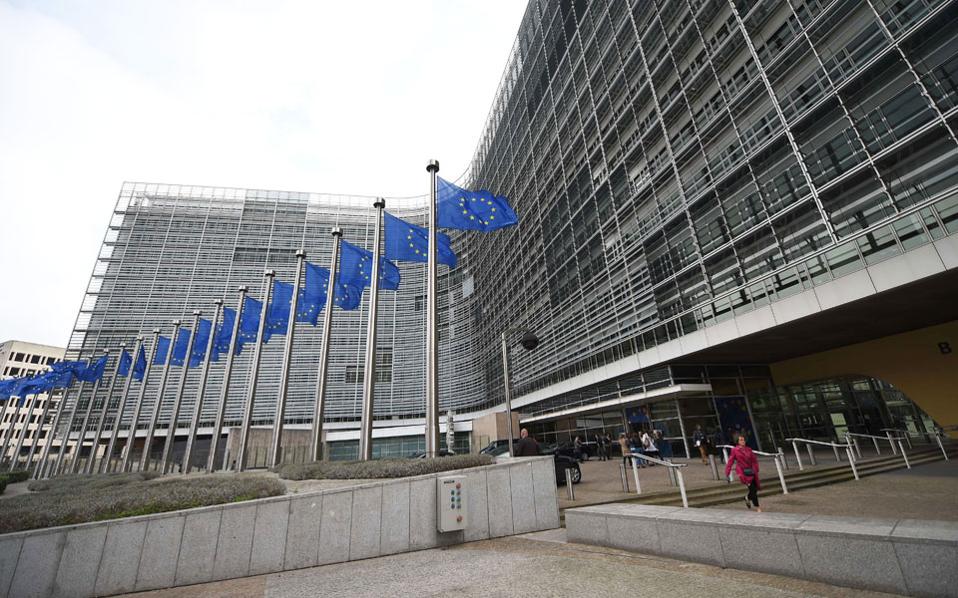Government aims to fast-forward reforms; talks with creditors to be tough

First, the good news: The government is on a mission to brief our eurozone partners, the other European Union members and our creditors on its plans to boost growth and its intentions to fast-forward long-stagnant reforms by cutting back on excessive spending and pushing privatizations, and then, and only then, present its demands.
These demands are based on finding much-needed fiscal space, meaning the ability to spend more and cut taxes to boost growth, by getting the creditors to reduce the primary budget surplus from 3.5 percent of GDP, an obligation that is strangling the economy.
Until this happens – and the government hopes the reduced surplus target will kick in in 2021 – the government will have to rely on good will and transparent communication so that it can start reducing the tax burden from 2020.
According to sources, Finance Minister Christos Staikouras will send the creditors (the European Commission, the European Stability Mechanism and the International Monetary Fund) only that part of the tax bill concerning the government’s pro-growth actions. He will wait to have talks with them before finalizing the draft of the main part of the bill.
At the same time, he will fast-forward some actions that are part of Greece’s obligations following the end of the third austerity program, something which the previous government dragged its feet on, to the creditors’ great annoyance, reflected in the negative comments in the European Commission’s latest report.
These actions involve drafting a 2020 budget with realistic spending ceilings that will not lead to useless surpluses and finally making good on state arrears to taxpayers and suppliers, two tactics that inflated surpluses in the past few years.
Other actions the creditors have demanded are accelerating plans to reduce the banks’ nonperforming loans, cutting back on unnecessary delays in court decisions, finally completing the property registry, a project delayed for decades, reforms in the energy sector including a timeline for ending the use of highly polluting lignite as a power source, concluding privatizations, such as the Elliniko real estate project, streamlining the administration and lifting the remaining capital controls.
Regarding the last action, Staikouras sent a letter to the European Commission last week including the draft text of the relevant ministerial decision abolishing all controls, which he said he wants to implement in September. The creditors are expected to approve the timeline.
The government has already shown signs of its reforming intentions regarding the labor market, by introducing two amendments on layoffs and subcontracting that essentially stripped off some employee protections.
The procedure followed, with the amendments tabled moments before the omnibus bill was voted, gave rise to negative comments but the government hopes that their content will be approved.
In any case, Brussels is putting great stock in Greece making good on its commitment to creditors to open up labor markets and professions, and will be looking for any backsliding on this issue that, in their view, would hurt growth prospects.
The creditors are not all praise for the government’s moves. According to sources, its new settlement of debt to tax authorities and social security funds in 120 installments was greeted with ironic comments of “same old, same old” from Brussels officials.
Creditors always believed that such concessions to debtors only encourage a culture of strategic nonpayment, something this government, like its predecessors, has encouraged.
The great challenge is the agreement between the government and the creditors on the 2020 budget. The government wants to implement a great part of its tax cuts in 2020 but, at present, the fiscal leeway is limited, if not nonexistent.
It is this uncertainty that led Staikouras, also mindful of a possible negative reaction from the creditors, to tell Kathimerini, in an interview published on August 4, that the only measure already decided is a corporate tax cut.
This uncertainty will also weigh on what Prime Minister Kyriakos Mitsotakis will be able to promise in his speech at the Thessaloniki International Fair on September 7, the traditional forum for Greek premiers to outline the following year’s economic policy.
The government will get a sense of the creditors’ reactions during an informal meeting on September 5, with the Eurogroup, where Staikouras will officially present his plans, following on September 13.
By then, Mitsotakis will have met with French President Emmanuel Macron, German Chancellor Angela Merkel and Dutch Prime Minister Mark Rutte.
Government officials say that, in any case, Mitsotakis doesn’t have to make many promises at Thessaloniki. It will be enough for him, they say, to point to the property tax returns, with their significant tax cuts.
But that doesn’t hide the fact that negotiations on the budget will be difficult. Besides believing there is little leeway for tax cuts, creditors have expressed their opposition to going back on the reduction of the tax-free ceiling on declared incomes.





